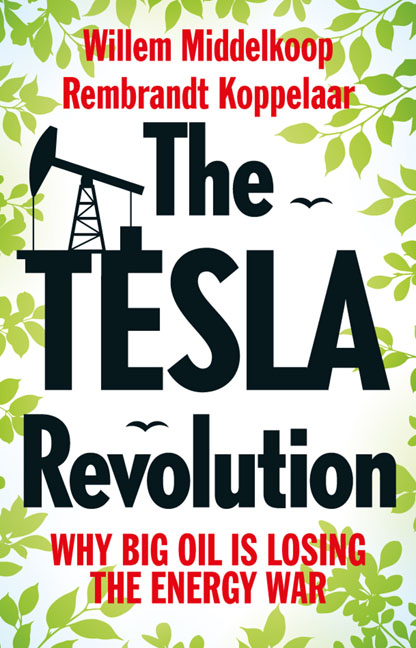Book contents
- Frontmatter
- Contents
- Prologue
- Special Introduction
- Chapter 1 The Tesla Revolution
- Chapter 2 A History of Fossil Fuel Dominance
- Chapter 3 The Petrodollar and the Geopolitics of Oil
- Chapter 4 Peak Oil Revisited: The End of Cheap Oil
- Chapter 5 Climate Change and the World of Energy
- Chapter 6 What Will the Energy Mix of the Future Be?
- Epilogue
- Appendix
- References Prologue
- Register
Chapter 2 - A History of Fossil Fuel Dominance
Published online by Cambridge University Press: 12 December 2020
- Frontmatter
- Contents
- Prologue
- Special Introduction
- Chapter 1 The Tesla Revolution
- Chapter 2 A History of Fossil Fuel Dominance
- Chapter 3 The Petrodollar and the Geopolitics of Oil
- Chapter 4 Peak Oil Revisited: The End of Cheap Oil
- Chapter 5 Climate Change and the World of Energy
- Chapter 6 What Will the Energy Mix of the Future Be?
- Epilogue
- Appendix
- References Prologue
- Register
Summary
No matter what we attempt to do, no matter to what fields we turn our efforts, we are dependent on power. We have to evolve means of obtaining energy from stores which are forever inexhaustible, to perfect methods which do not imply consumption and waste of any material whatever… If we use fuel to get our power, we are living on our capital and exhausting it rapidly. This method is barbarous and wasteful and will have to be stopped in the interest of coming generations.
– Nikola Tesla 1897 and 1915The transition to widespread use of solar energy has already begun. Our task is to speed it along. True energy security—in both price and supply—can come only from the development of solar and renewable technologies.
– Jimmy Carter 1979, former US presidentIf you don't invest in oil and gas, you will see more than $200 per barrel.
– OPEC secretary-general Abdalla El-Badri, 2015Introduction
The Industrial Revolution began in the 1870s with the inventions of the steam engine, electricity, and oil drilling. At that time, virtually everyone alive lived without electricity, traveled primarily by horse, and heated their homes with wood. Life was hard and most time and income were spent on producing and buying food. The inventions of electricity generation and lighting by Nikola Tesla and Thomas Edison changed everything.[1] The era of electricity started with the opening, in 1897, of the first multimegawatt Niagara Falls (waterfall) hydroelectric power plant. Tesla's alternating current (AC) generators enabled the harnessing of the power of falling water and distribution of the electricity to the city of New York. The current AC motor used by Tesla in all of its cars is built using the same laws of physics. We now live in an era of energy abundance. Never before in the history of humankind has so much energy been available. It is difficult to fathom that—just in the last 300 years—we have used more energy than in all the millions of years of human history prior. Let's have a look at what has happened to the world of energy in the last 150 years.
- Type
- Chapter
- Information
- The Tesla RevolutionWhy Big Oil is Losing the Energy War, pp. 85 - 120Publisher: Amsterdam University PressPrint publication year: 2017

